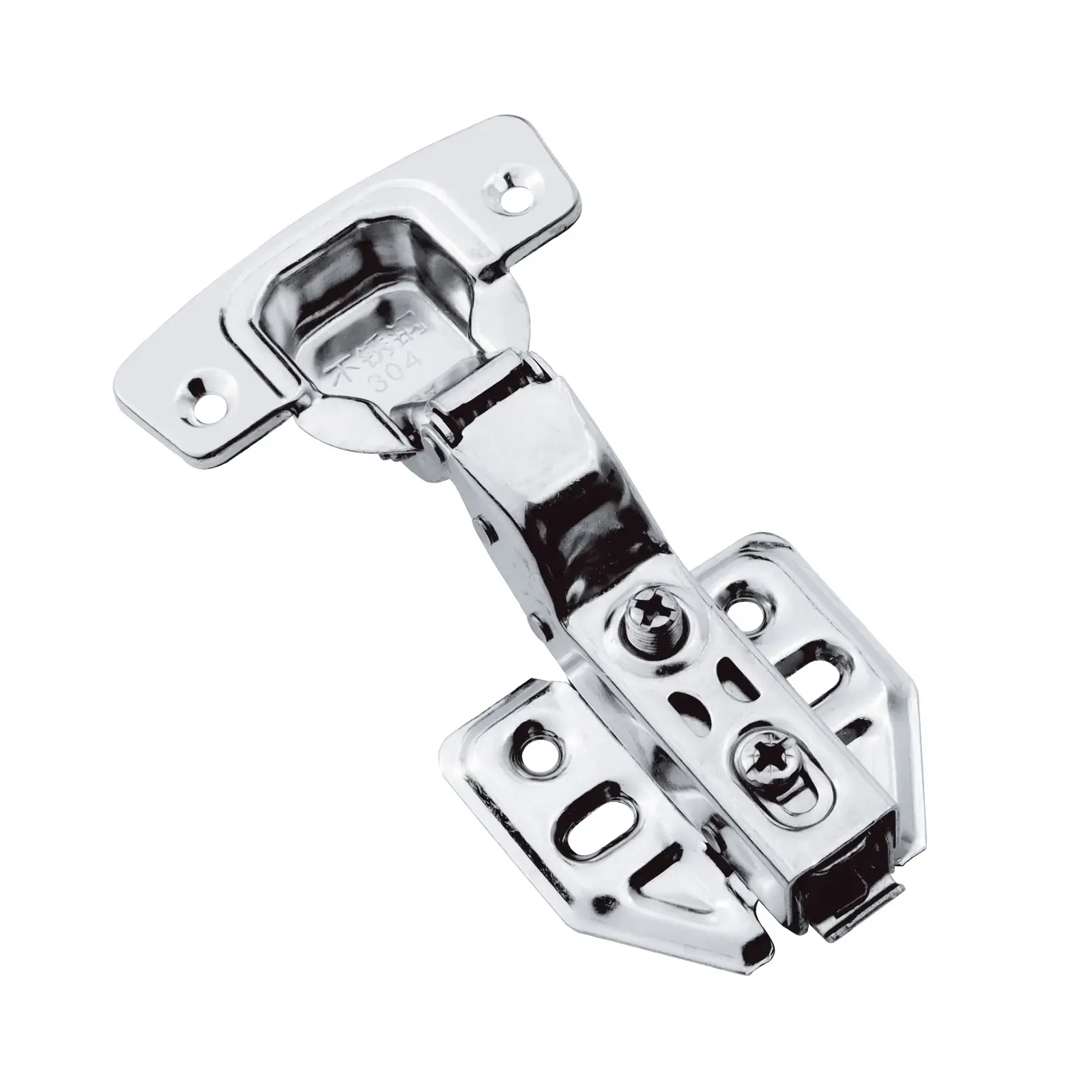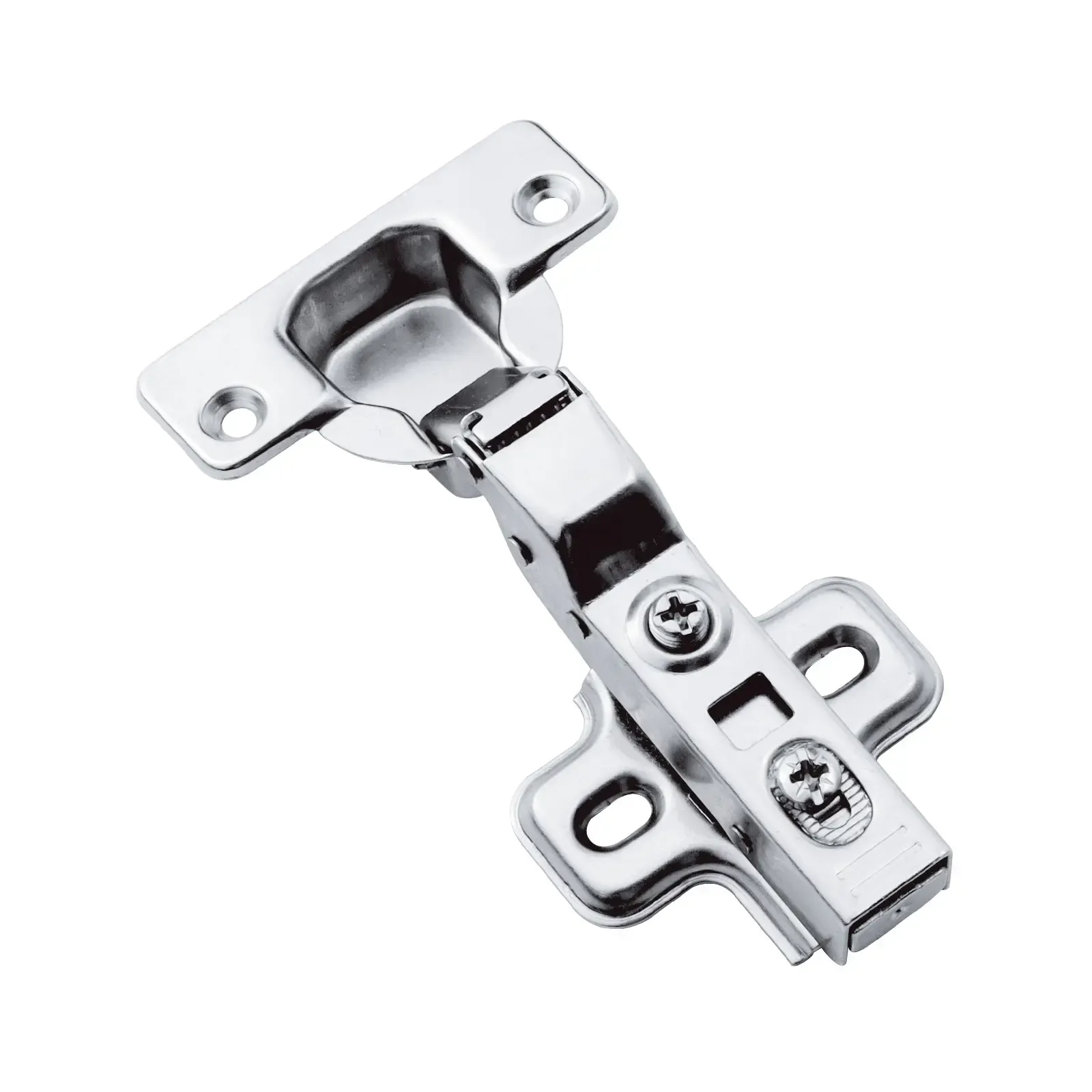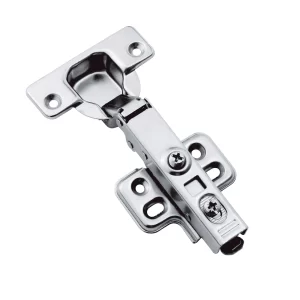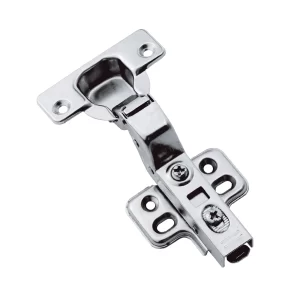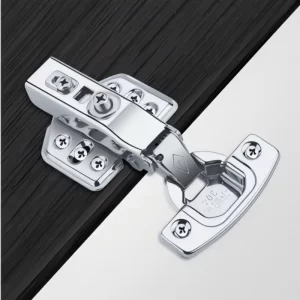It is quite easy to discover that our bathroom cabinet hinges are vulnerable to moisture. The most deadly threats causing rust and corrosion are steam, splashes, cleaning chemicals, and rapid temperature changes. In order to prolong the lifespan of cabinet hinges working in the bathroom, you should select the appropriate ones.
As a professional hinge manufacturer, Mingrun is going to explain why they tend to rust, and our tips for preventing bathroom cabinet hinge rust and corrosion.
Why Bathroom Cabinet Hinges Tend to Rust
A bathroom cabinet hinge is constantly exposed to moisture. Over time, water molecules react with oxygen and metal surfaces, causing oxidation. Humidity accelerates this process, especially when combined with:
- Soap and detergent residues
- Hard-water minerals
- Chemical cleaners
- Chloride-rich environments (e.g., coastal regions)
- Poor ventilation
Even high-quality metal can corrode if the surface finish is damaged or if moisture stays trapped behind the hinge cup or mounting plate.
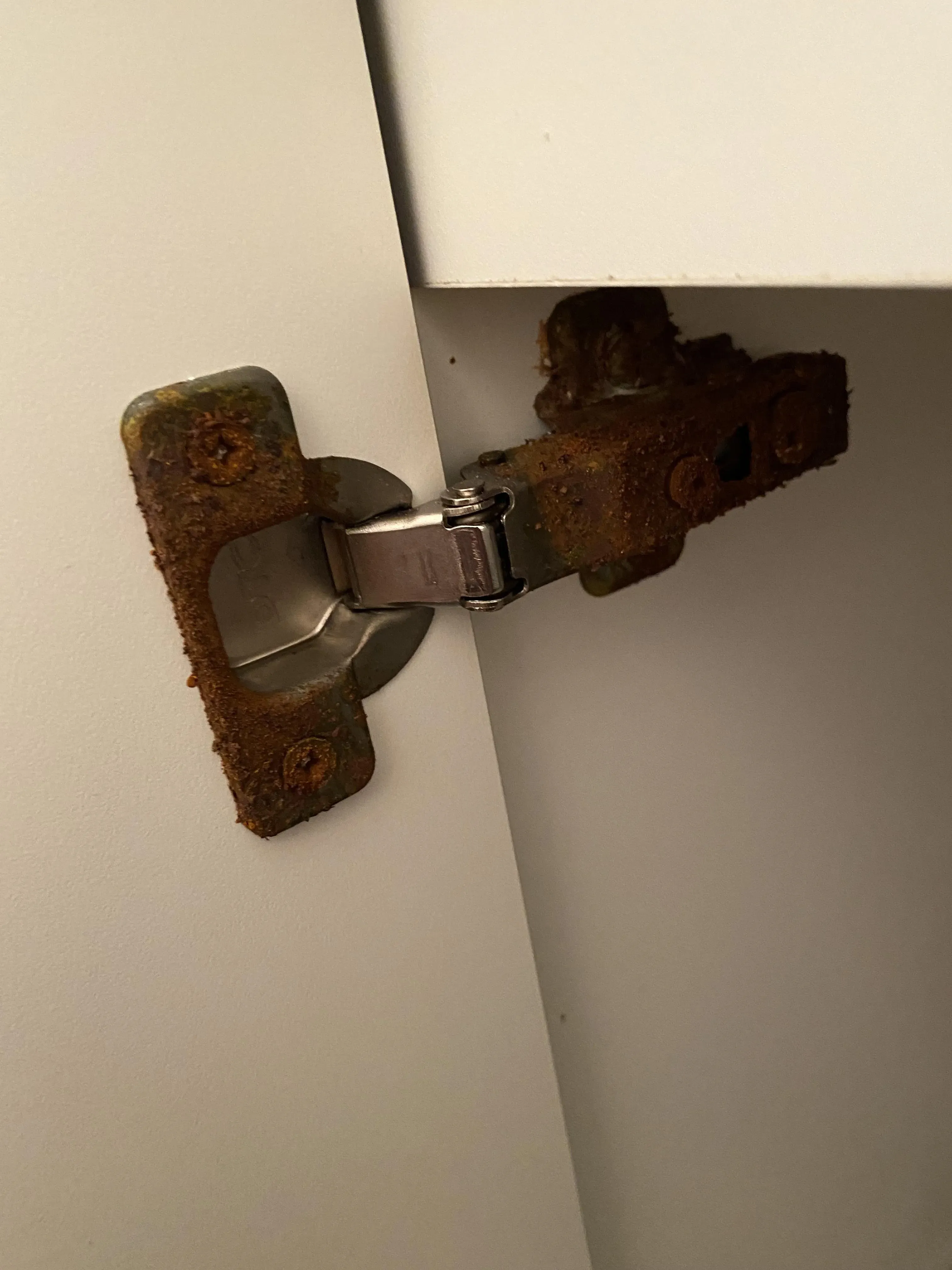
Recommended Hinge Materials Used in Bathrooms
Different materials deliver different levels of corrosion resistance. Understanding the pros and cons helps you select the right bathroom cabinet hinge for long-term durability.
316 Stainless Steel (Marine Grade)
The gold standard for moisture-rich spaces.
- Excellent chloride resistance
- Ideal for bathrooms near showers
- Best option for coastal climates
High cost, but unmatched durability.
304 Stainless Steel
A widely used material with good corrosion resistance.
- Suitable for most indoor bathrooms
- Affordable and stable
- Not as resistant to chlorides as 316.
Brass Hinges
Strong natural resistance to corrosion.
- High-end appearance
- Resistant to moisture and oxidation
Softer metal, less suited for heavy cabinet doors.
Zinc Alloy Hinges
Budget-friendly but prone to corrosion unless protected.
- Must rely on coating quality
- Good only with strong surface treatments (PVD, electroplating, powder coating)
Not recommended for high-humidity bathrooms without proper finishing.
How to Prevent Rust and Corrosion
Choose Corrosion-Resistant Materials First
Your first line of defense is the hinge material itself.
- 316 stainless steel → Best corrosion resistance, ideal for wet bathrooms
- 304 stainless steel → Good but slightly weaker against chloride
- Brass → Naturally corrosion-resistant
- Avoid untreated zinc alloy → Only acceptable with high-grade surface treatments
Rule: If the cabinet is near the shower or the bathroom is frequently damp, choose 316-grade bathroom cabinet hinges.
Use Protective Surface Treatments with Verified Test Data
A surface coating provides a protective barrier between moisture and metal.
Common high-performance hinge surface treatments include:
- PVD Coating
Super durable, highly resistant to scratches, humidity, and chemicals. - Powder Coating
Thick, protective layer suitable for zinc alloy hinges. - Ni/Cr Electroplating
Reliable only with proper underlayers and sealing.
Always request from suppliers:
- Salt spray test results
- Coating thickness data
- Adhesion test reports
Buyers should never rely on finish names alone; actual performance matters.
Prevent Water Accumulation During Installation
Even the best bathroom cabinet hinge will corrode if water sits on or behind it.
- Avoid positioning hinges where they receive direct shower spray
- Ensure cup holes do not trap water
- Use stainless steel screws to prevent galvanic corrosion
- Seal back gaps lightly with silicone (avoid sealing moisture inside)
Scratches or poorly sealed areas become corrosion hotspots—installation quality matters.
Improve Ventilation and Moisture Management
Humidity affects how fast corrosion develops.
- Add ventilation openings to cabinets
- Keep bathroom humidity below 60%
- After showers, open windows or turn on exhaust fans
Better ventilation = longer hinge life.
Maintain Hinges Regularly
Simple maintenance prevents long-term damage.
- Wipe hinges weekly to remove moisture, soap, and mineral buildup
- Clean with mild detergents (avoid bleach or acidic cleaners)
- Lubricate moving parts with silicone or PTFE sprays
- Inspect screws and hinge plates every few months
These small steps dramatically extend the lifespan of any bathroom cabinet hinge.
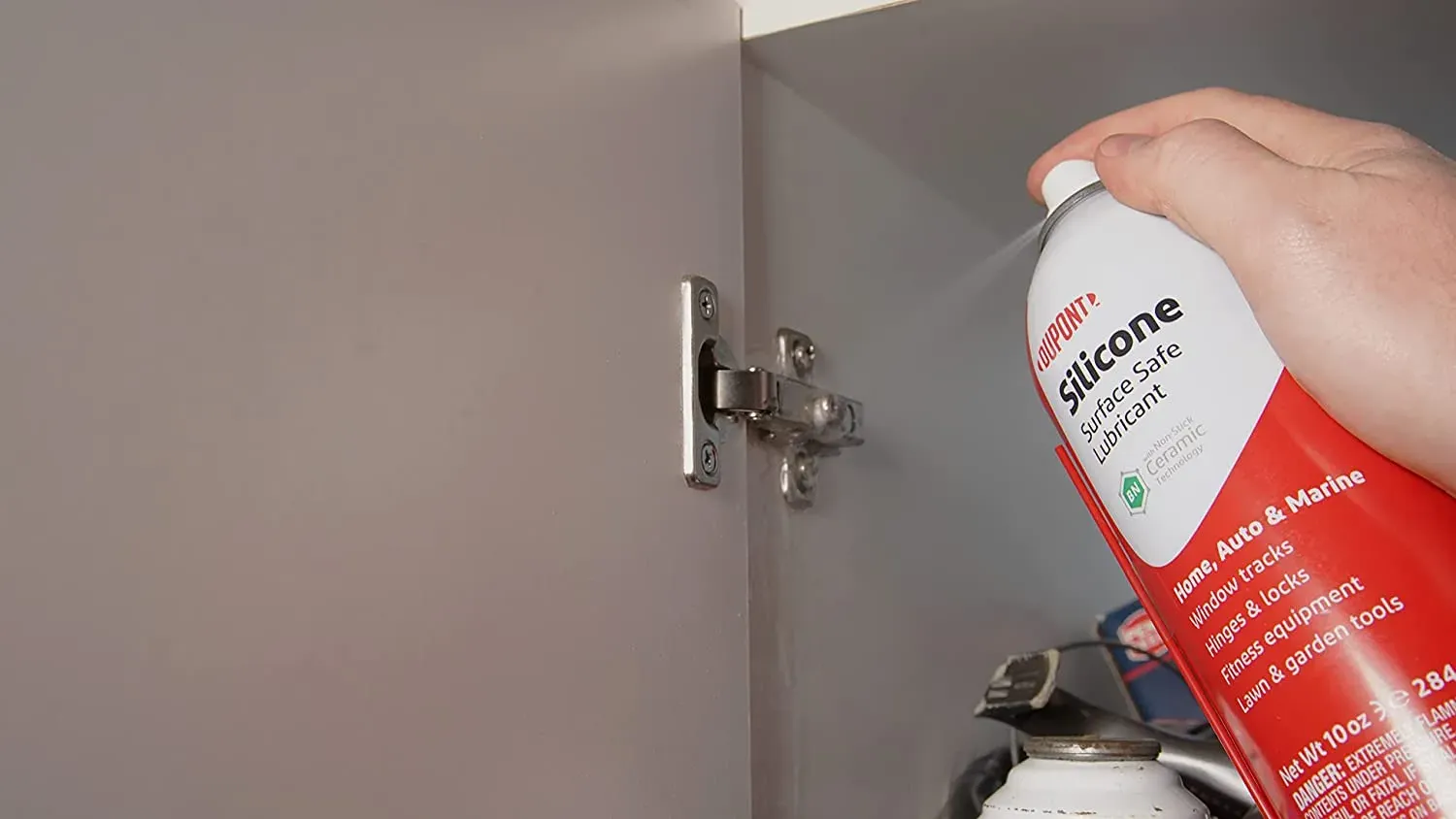
Protect Hinges Before Installation
This is especially important for B2B buyers.
- Store hinges in dry, temperature-stable environments
- Do not leave hardware sealed in plastic bags in humid warehouses
- Install hinges after wet construction stages (painting, tiling)
Corrosion often starts before the hinge reaches the customer.
Choose Reliable Suppliers with Verified Test Capabilities
For B2B buyers, selecting a supplier with proper testing capabilities ensures product reliability.
Ask for:
- Material certificates (ensure 316 or true 304, not low-grade steels)
- Salt-spray test data (ASTM B117)
- Cycle-life testing (≥50,000 cycles recommended)
- Surface finish test reports
High-quality manufacturers treat bathroom hinges as a moisture-resistant system—not just hardware.
Conclusion
A bathroom cabinet hinge serves in one of the most challenging environments of any home. If the right materials and protective coatings, as well as installation methods and maintenance, are not considered, rust and corrosion will occur much sooner than planned.
Avoiding rust and corrosion of life in bathroom hinges will be greatly extended for the homeowner, contractor, or B2B furniture manufacturer by specifying corrosion-resistant materials (e.g., 316 stainless steel), high-quality finishes (e.g., PVD), ensuring an ample supply of air circulation, and regular maintenance.
About Mingrun

Mingrun is a professional hinge manufacturer specializing in high-quality furniture hinges built for precision, strength, and long-term durability. Our factory operates with advanced automation and streamlined production systems, enabling large-scale output without compromising quality.
Backed by a reliable supply chain and efficient logistics, we ensure every custom hinge solution is delivered quickly and consistently. Mingrun is the partner you can trust for stable supply, competitive lead times, and dependable service.

